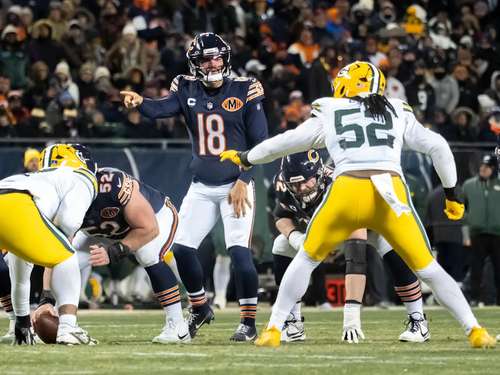Sports are fun to watch. Professional sportspeople not only entertain us, they give us something to look forward to after work. A reason to look beyond the vicissitudes of life and temporarily forget our problems. And what do they get in return?
To be fair, money was probably the first thing that came to mind when you saw that question. Yes, athletes make money, truckloads of it, in fact. But that's not the only thing they get.
Sometimes athletes get injured too. Some of these injuries are mild and easy to recover from within days or a couple of weeks. Other injuries aren't so simple, they are severe and can affect an athlete's ability to continue competing at the highest level. In this article, we'll dive into some of the worst injuries in sports and tips on how to avoid them.
Common Causes of Sports Injuries
Common sports injuries vary from one sport to the other. Before we go into the injuries themselves, let's take a brief look at the most common causes of injuries to sportspeople.
1. Lack of Warm-up
This is more of a general advice that is not only related to sports. If you work in a field where intense physical activity is required, it's wrong to jump straight into it without warming up for at least 15 to 30 minutes.

The same goes for sportspeople. A brief period of warm up activities helps increase blood flow to the muscles and prepares the body for any impending physical exertion.
2. Improper Technique
Engaging in sporting activities using the wrong form, posture or technique can put undue stress on the body and result in injury. Professional sports coaches know the right techniques to use and can help prevent these issues.
3. Impact and Collisions
Physical contacts are near impossible to avoid in professional sports. Sports such as football, rugby, hockey and wrestling are heavy on physical contact, therefore athletes are prone to fractures, dislocations and torn ligaments. Using the appropriate protective gear will play a key role in reducing this risk.
4. Lack of Rest
Most sporting activities include repetitive movement on the muscles and joints. This can lead to injuries that start small and then develop gradually and worsen over time without proper treatment. Regular rest and proper pacing during training can help prevent this.
Some of the Worst Sports Injuries
Now let's look at some of the worst injuries in sports.
1. Torn ACL (Anterior Cruciate Ligament)
Tearing the ACL is one of the most severe injuries an athlete can face in their sporting career. It mostly occurs in sports such as football, basketball and American football, and typically when an athlete changes direction suddenly while on motion or lands awkwardly.

Symptoms of these injuries include intense knee pain and swelling. Recovery can require surgery, with the athlete likely spending months undergoing rehabilitation. Recently an unfortunate trend of footballers suffering torn ACLs has sparked concern over scheduling in football.
2. Concussion
Concussion is another injury prevalent in sports where contact is frequent such as football, rugby and boxing. A concussion is a brain injury that occurs when players experience blows to the head. It can cause dizziness, headaches and memory loss.
It is important to seek immediate medical attention after a head injury as concussions, if not urgently and properly treated, can have severe long-term effects. In football, for example, there are special rules and treatment procedures for treating concussions right on the pitch.
3. Hamstring Strain
The hamstrings strain is not uncommon amongst athletes who work in sports that involve a lot of quick stops and starts. The usual culprits are tennis, football and basketball, and a strain can range from a minor pull to a complete tear. Severe or recurring hamstring injuries may require surgery and a lengthy recovery period for the athlete.
4. Fractures
When two or more athletes collide or an athlete falls and a bone is broken, it's referred to as a fracture. It is usually associated with painful swelling and difficulty moving the affected area.

Depending on how serious the fracture is, treatments may involve casting bracing or sometimes surgery. More often than not an athlete can go back to playing professional sports after their fracture is healed, but it has also been known to end sporting careers.
5. Patellar Tendon Tear
The patella tendon tear is what happens when the tendons that connect the kneecap to the shin bone tears. This is often the result of an awkward landing or direct impact to the knee. If not promptly treated this injury can cause severe leg mobility. Repairing the tendon in most cases requires surgery.
How to Avoid Sports Injuries
As a matter of honesty, injuries cannot be completely avoided in sports. However, they can be reduced to the barest minimum by following these tips.
- Engage in Adequate Warm-Up: Spending at least 15 minutes warming up your muscles with light activities such as jogging and stretching will prepare your body for more intense activity.
- Take Breaks: Learn to take breaks. Pace yourself and give time for rest and recovery to avoid straining your muscles and joints.
- Use Proper Techniques: Work with your coaches to ensure you're using the right techniques. This reduces unnecessary stress on the body and mitigates injuries.
- Wear Protective Gear: if you're engaging in a sport that requires protective equipment such as helmets, pads and braces, don't ignore them. These items are designed to significantly reduce the impact of collisions and falls.
- Always Be Hydrated: If you watch a lot of sports, you would notice athletes are always taking sips from bottles of water from time to time. Have you ever wondered why? Well, it's because muscle function and overall physical performance is highly enhanced by proper hydration. Stay hydrated by taking sips of water regularly especially in hot conditions, to keep your muscles in good shape.
The Bottom Line
Sports are indeed fun. But the injuries, when they come, can be quite serious. However, most of it can be prevented with the right precautions.
Remember to stay safe by warming up before engaging in sporting activities, using the right techniques, wearing protective gear and staying hydrated. If you do experience an injury, it's important to seek medical attention promptly to avoid further complications.




